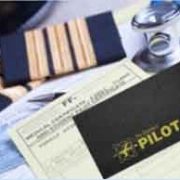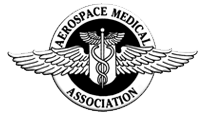Psychiatric Conditions | FAA Medical Certification
 While the FAA does not strictly evaluate the behavioral health of pilots during routine medical certification examination, they do require applicants to voluntarily report all mental issues since birth. The FAA has approved Special Issuance authorizations for some Class 1, 2 and 3 airmen who are taking a select few medications under the FAA’s strict and increasingly complicated antidepressant protocol. Approval requires extensive medical evaluations with eloquently detailed records.
While the FAA does not strictly evaluate the behavioral health of pilots during routine medical certification examination, they do require applicants to voluntarily report all mental issues since birth. The FAA has approved Special Issuance authorizations for some Class 1, 2 and 3 airmen who are taking a select few medications under the FAA’s strict and increasingly complicated antidepressant protocol. Approval requires extensive medical evaluations with eloquently detailed records.
In 2010 the FAA announced isolated approval of four(4) antidepressants known as Selective Serotonin Reuptake Inhibitors (SSRI’s) such as Celexa (Citalopram Hydrobromide), Lexapro (Escitalopram Oxalate), Prozac (Fluoxetine Hydrochloride), Zoloft (Sertraline Hydrochloride). Wellbutrin (Bupropion) has been potentially acceptable for several years and the Federal Air Surgeon, Susan Northrup, recently added it to the published list of potentially acceptable psychiatric medications. While Bupropion can be acceptable for pilot-use a comprehensive process is required for FAA acceptance. Pilots who wish to be considered can contact Pilot Medical Solutions at 405-787-0303 to find out if they can be favorably considered by the FAA. FAA medical approval is less likely to be allowed if there is a significant medical diagnosis which requires medication to assure safe function and behavior.
The initial presentation of any psychiatric/psychological issue typically requires an evaluation irrespective of medication use. This should be performed for the FAA by a carefully selected medical provider and reviewed confidentially by an expert to establish eligibility for FAA medical certification. This includes but is not limited to:
- Depression
- Anxiety
- Attention Deficit
- Psychosis
- Bipolar
- Personality Disorder
- Substance Dependence or Abuse and the use of any psychotropic medication.
FAA psychiatric evaluations must be accomplished in compliance with specific protocols. Before documentation is sent to the FAA it should be reviewed by an aeromedical document expert. Authorization must be obtained from the Federal Air Surgeon or their designee, such as the Aeromedical Certification Division of the FAA in Oklahoma City. Aviation Medical Examiners (AME’s) are normally not authorized to approve certification for airmen with the aforementioned behavioral-medical history and they are required to defer the application to Oklahoma City FAA. The AME deferral process can take many months just to receive the FAA’s initial response. If the pilot applying is taking medication the case will usually go to Washington, D.C.. When the case goes to Washington it is not uncommon for the decision to take many months. In fact, it is common for pilots to wait well over a year without our service.
We can help!
We have helped thousands of pilots with this process. We have developed proprietary psychiatric fitness strategies and work directly with private physicians and the FAA to assure compliance with FAA medical protocols and to resolve complex aeromedical certification issues quickly.
Contact us at 405-787-0303 or via E-Mail to confidentially discuss the details of your case and to establish your eligibility for FAA medical certification.
There is no charge for an initial consultation.
Herbal Preparations | The Pilots Mind | Psychiatric Fitness | Pilot Mental Issues | FAA Statistics | SSRI’s & Pilots









I have been flying for 25 years. I used to fly every day but over the last few years I fly much less. I am much less comfortable flying into certain areas and under certain circumstances which I used to routinely fly. It is not hard to see why the FAA doesn’t want someone with a compromised mental status to fly. It will be interesting to see how many accidents occur now that Basic med and sport pilot are out there since private physicians will not balk at the use mental medications.
There is no question that pilots can safely fly on some psychiatric medications. The difficulty is determining which pilots can fly safely and which are potentially unsafe. The system is designed to assure no false negatives. In other words, the FAA doesn’t want to certify a pilot who appears to be fine only to learn through tragedy that the airman was not fit.
The key to all medical certification issues is providing the FAA with objective information which indicates essentially normal mental functionality. Anything less is deemed jeopardizing.
For more see: https://www.leftseat.com/faa-medical-certification-psychiatric-fitness/
It’s been said that almost half of the Basic Med applications were from pilots with DUI’s. This is bound to have an affect upon the crash numbers.
Just heard from a friend who made captain recently but lost his medical due to an argument with a flight attendant. How is that possible? What medical/legal grounds does the FAA have for that?
Shawn
Unfortunately this is not the first and probably will not be the last.
There are many scenarios which can result in psychiatric or psychological testing and the results are often not what is expected.
Best to read the full article on the subject:
https://www.leftseat.com/dont-call-me-shirley/
Hello,
I’ve seen other pages on your website that state that Wellbutrin is not approved whatsoever by the FAA. Is there a recent change to the rules that now permits Wellbutrin on a case-by-case basis? If so, is it in effect yet? I’m a new student pilot with commercial aviation aspirations and I have been taking Wellbutrin for over 2 years now (same dose for over a year), with significant improvement in my condition since then. I have set up an appointment with a HIMS AME in my area to start the process of obtaining a Special issuance certificate (third class). I will of course be providing the AME with all records from my psychiatrist. I have seen conflicting viewpoints on Wellbutrin’s acceptableness on other websites too. At one point I was also taking Prozac, but it has been over 6 months since I have stopped taking it, with no adverse affects.
Ultimately my question is, will I be immediately disqualified from obtaining a medical certificate due to the medical/pharmaceutical history I’ve described above? Or will I be able to proceed with the process of obtaining a special issuance medical certificate. Greatly appreciate some guidance.
Regards,
Max M
Max,
While Wellbutrin is not currently on the FAA accepted list for flight deck use, the FAA has stated they are in the process of approving this medicine. So cases are stacking up at the FAA in order for them to pick the ones they might approve. It is important to note that even the drugs which they list as approve are rarely approved by the FAA. It would be best if you contact us at 405-787-0303 to discuss the details of your case and establish eligibility for certification.
Past basic med erroneously in 2017 my AME signed me off after a physical. I completed a bi annual flight review with a cfi and then got a letter from the faa saying it was all for naught because I didn’t have a valid med certificate after 2010. In the basic med application I revealed that I take low dose lexapro. Bam… Now I have to see a HIMS, $800. Next a shrink, S2000. Next a Neurophsycolgist for a cog screen $2000. If I fail any of these I’m out the money. If I pass but the *#@ches at the faa are in a bad mood they will still denied the cert. As it stands now I can’t even fly light sport. Thanks to misunderstanding basic med I gave the faa all they needed to keep my out of private aircraft for good. So much for the bill of rights in regard to the pursuit of happiness. You can try, right up to the point where the government says “no you don’t”. The bill of rights goes right into the bureaucratic *#@t can.
Steve,
We can’t save you the cost of the testing but we do provide free consults. The consults often provide information that can substantially reduce the time it takes to get certified.
Please call 405-787-0303.
Just curious, how would the doctors know if you have a mental condition if you don’t mention it? Would be interesting to know how many pilots are out there secretly denying their depressions etc… ?
Oscar,
This is a common question. Many believe that pilots are just as likely as the general population to have issues such as depression. Reportedly about 17 percent of women and 9 percent of men report antidepressant use. And these medications are used for other conditions besides depression. We speak with pilots every day who want to “come clean” with the FAA on these issues. Often they are scrambling to report a mental issue because the FAA has asked them about it or they fear someone will report them. Doctors are trained to pick up significant cognitive or mental impairment and the FAA has other pathways for this issue. The main one is the toll-free anonymous hotline. The important part is that if all paths for discovery fail and the pilot fails to report it he/she will be witholding something which the FAA often approves.
This is the best flight fitness / FAA medical website on the net.
Thanks for clarifying the psychiatric issues. I will recommend this website!
I just met with a HIMS AME sponsor who seems to be less of an advocate and more of an FAA hatchet man.
He said I must have testing which costs thousands of dollars. When does the sponsorship kick-in?
The HIMS AME’s sponsorship role is put the case to the FAA once the documentation supports approval. They should be supportive but if they are not supportive it could be because there isn’t enough evidence to support.
The FAA told me I must get a psychiatric evaluation from an aviation trained psychiatrist. How do I find this person?
LEFTSEAT-
The FAA seems to be asking pilots questions that can’t be answered without the loss of the pilot’s ticket. The Psychiatric Conditions article is well written and helped me a lot. Keep up the good work!
Thanks
Sam
Howdy, seems the FAA has me jumping through hoops a plenty. What’s the best (and fastest) way forward through all the psychiatric and psychological requirements? I had minor depression and only took medication for about 6 months.
No crazier than the rest,
Cam
My husband is an extrovert while I am a monogamist. This gives me great stress so I take a pill. Will the FAA approve me?
Laurinda,
The FAA often accepts mild to moderate depression, but only on certain medications. The FAA is on record as being willing to certify some, but not all, pilots who take certain antidepressants. The list of favorites include Celexa (Citalopram Hydrobromide), Lexapro (Escitalopram Oxalate), Prozac (Fluoxetine Hydrochloride) and Zoloft (Sertraline Hydrochloride). For more visit:https://www.leftseat.com/psychotropic-medications or call 405-787-0303.
Thanks for the helpful piece of information. I’m grateful that Leftseat.com provides supportive info for pilots.
I’m hoping someone can give me some hope/help. My 16 year old son has dreamed of being an airline pilot for years. He was in an accident about a year ago that caused a concussion which made his grades plummet which tanked his Air Force Academy dream. He also had a couple injuries that took him out of sports and isolated him from his friend group (now healed). All this just as we were starting to come out of COVID. He was very depressed (for cause) so we experimented with a few meds and he ended up on Wellbutrin (he’s been on it for about 4-5 months). It is very likely he will start to be weaned off soon because he is doing well. I also had him go through TMS treatment because I wanted to do anything I could to help feel better. I had no idea I was hurting his chances to fly. Anyway, he is hoping to start ground school in 2 months. Any suggestions for our best course of action?
Christine,
Ultimately it should be possible to obtain certification. While the short-term use of Wellbutrin (assuming it is discontinued) is typically not a show stopping issue there are other complicating factors. Him being at a young age and combined treatment with TMS will be scrutinized closely by the FAA. They may very well require a significant wait period (perhaps a few years) and comprehensive psychiatric and psychological evaluation to assure the condition is sufficiently stabilized or resolved. There are many variables here and as such you will likely receive a wide variety of opinions if you ask around. It will be best to discuss the details with a Pilot Medical case manager to assure the most accurate information. The number is 405-787-0303.
So all this tells me or 99% of us that unless you are a perfect human being Superman type you won’t be able to fly !!??
Actually 99% can fly but in many cases the paperwork or testing required by the FAA can be a burden.
It helps to have an expert to look at the requirements and help you comply:)
My son is aspiring to be a pilot and will need first class medical. He is 17 now, has been on Lexapro and Guanfacine since a childhood trauma at age 10 (he basically watched his sister collapse and die, his parents divorced within 6 months and he lost his home and had to move). He attended counseling to recover from the trauma and learn to deal with the parents’ ongoing contentious divorce. He experimented with ADHD meds before they decided he was not ADHD and he came off the meds but to cover him in school for executive functioning they cover him as ADHD because executive functioning cannot stand on its own. He is coming off the guanfacine and lexapro this year, will he be able to get a first class certification in a year or two without additional testing? He will not be on any meds and his “diagnosis” for ADHD states he doesn’t show any symptoms of it but is served as executive functioning.
Lynn,
Provided the meds are discontinued and he demonstrates stability off-meds, your son may very well be able to obtain certification with some cognitive training and fresh testing. Each case is different so it would be good to talk with someone about the details of your son’s case. Call Pilot Medical at 405-787-0303 to discuss the case in detail. There is no charge for that consult.
Provided your son discontinues the listed medications and is stable, he may be able to obtain FAA medical certification if he can bolster his cognitive scores through cognitive training. Pilot Medical assists many pilots with this each year. Call 405-787-0303 to discuss the details.
Hi there I have seen conflicting reports on ADHD meds. I never received a diagnosis and asked my doc years back to help me with the long hours I was putting in with work and he prescribed an adhd med. I stopped taking it and ended the medication last year but is ADHD an automatic denial?
Thank you!
ADHD and and the previous use of stimulant meds just means the FAA will make you jump through extensive hoops. This typically includes neuropsychological testing. The FAA wants to sure you have the mental moxie flying requires. Again, there’s quite a bit required here.
Call 405-787-0303 and talk with David if you want to know everything you will need.
Is welbutrine accepted noe in 2023, for medicsl class 1?
Europearane country.
Julie,
I am not sure we fully understand the question. The FAA is willing to approve Wellbutrin on a case by case basis now and we may be able to help you obtain reciprocity from your government. There’s a bit more we need to know. Please contact Pilot Medical at 405-787-0303.
back in 2016 I decided I wanted to start flying for fun, and applied for and ultimately received a class 3 medical SI for a history of Tourette syndrome, OCD. After an 11 month battle getting my class 3 SI, I immediately went to basic med. PMS helped me line up the right doctors for the tests. After considerable effort and cognitive therapy, I have been symptom and medication free for 7 years, and my doctors several years ago cleared all of my diagnoses. 2100 flight hours later, I have accumulated instrument, commercial single and multi ratings, as well as CFI/CFII/MEI. I will likely have my ATP rating finished in the next 1-2 months. Never had an accident, incident, or FAR violation. Nothing else has changed with my health and no new conditions have developed. Basic Med has gone from more than I thought I’d ever need to extremely limiting, and I’m considering doing some professional flying in addition to instructing, which would require a class 1 or 2 medical. Do I have a good chance at success or should I just stick with Basic Med to avoid the risk destroying everything I have worked for?
Dustin,
The FAA has certified airmen for commercial operations with these issues. Our approach includes the option to have our former FAA staff members review all records before submittal to assure success. Contact us at 405-787-0303 to discuss your case in detail.
I have a question. I have had docs in the distant past label me bipolar, but they no longer label me as such. as of probably two years ago. I do not have an official diagnosis as of a couple of years ago. Do they look at all your medical records? Are you able to get your private and still work for private companies?
Bipolar if correctly diagnosed, is a show stopper-No FAA certification. If it can be refuted it is possible to obtain certification and YES, they will absolutely look at your records. If you call Pilot Medical at 405-787-0303 they can walk you through it.